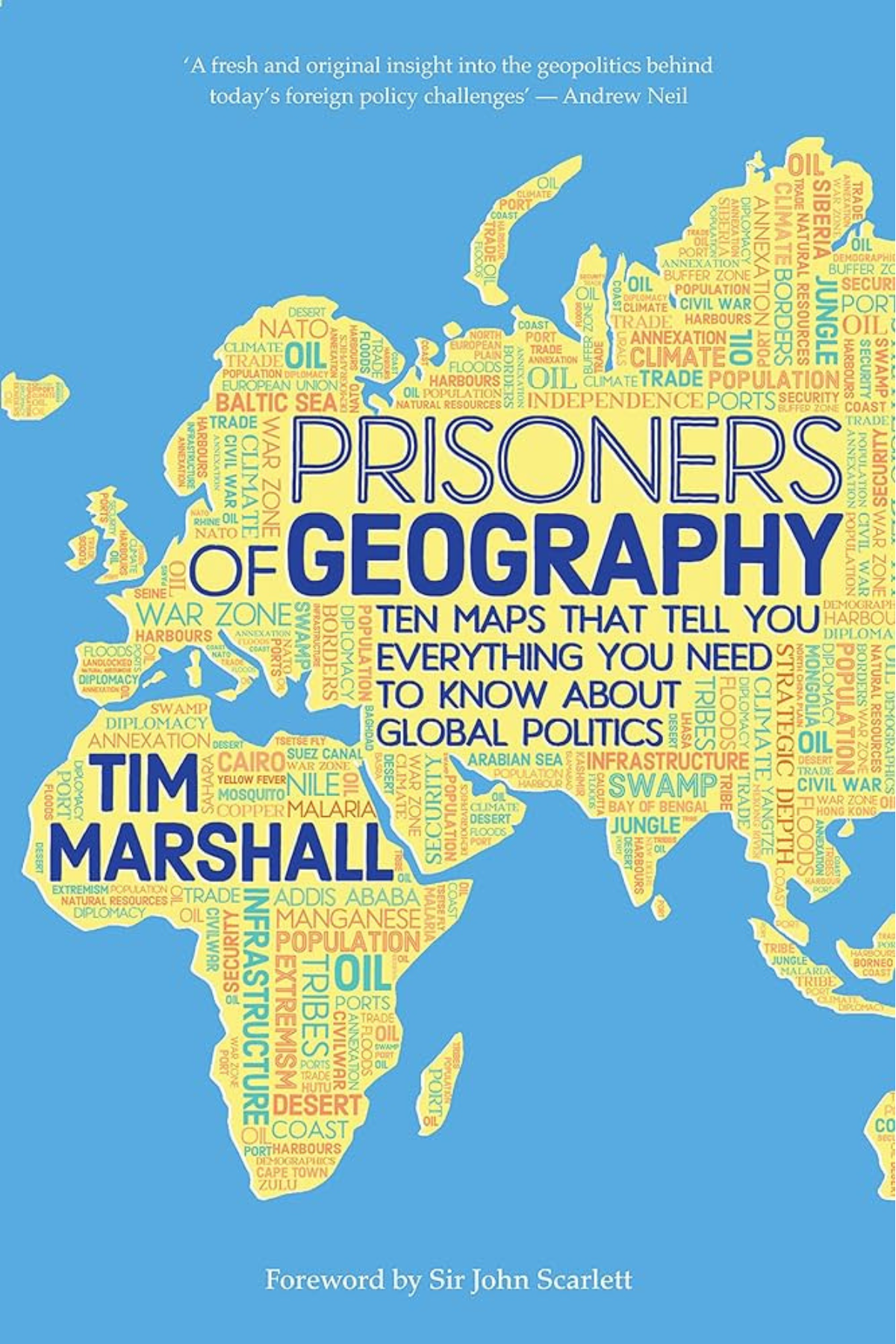Although we have broken free from the shackles of gravity, we are still imprisoned in our own minds, confined by our suspicion of the ‘other’, and thus our primal competition for resources.
- Tim Marshall
Geopolitics, at a macro level, is a crucial factor for countries and businesses, whether it involves establishing international trade or making decisions about global expansion. Recently, I have been keen on studying this subject to be able to analyse a problem holistically. Additionally, geography is an area I have always struggled with, and I often have a poor sense of direction. It happens that a colleague recommended the book Prisoners of Geography by Tim Marshall. With hopes of understanding geopolitics and improving my sense of direction, I embarked on reading this book.
Prisoners of Geography is a book on history, politics, and geography. Drawing on his experience as a leading authority on foreign affairs, Marshall provides detailed examples that make the book enjoyable and easy to read. It addresses the geopolitical issues we hear about daily and delves into the dynamics between countries and their strategic decisions driven by geographical formations. For instance, the conflict between Russia and Ukraine and Russia's annexation of Crimea are significantly influenced by geography. Ukraine borders NATO countries, and Crimea offers Russia its only proper warm-water port, which is crucial for naval strategy. Boundaries between countries are often defined by geographical features, such as the Himalayas separating China and India. Conversely, boundaries drawn by colonial powers, such as in Africa and the Middle East, have led to poverty and prolonged unrest. These artificially created borders often disregard ethnic and cultural divisions, leading to ongoing conflicts and instability.
Geography plays a significant role in the success of nations. America's dominance is partially attributed to its favourable geography, including vast arable land, navigable rivers like the Mississippi, and abundant natural resources. In contrast, Africa, despite its wealth in minerals and natural resources, has not become a superpower, partially due to geographical challenges. For example, many of its rivers, such as the Congo and the Nile, originate in highlands and descend in abrupt drops, creating rapids and waterfalls that hinder trade and connectivity. Even within a country, geographic features drive population concentration and business activities. In China, early human and business activities flourished along the Yellow River, which provided fertile soil and a means of transportation, fostering the development of civilisation in the region.
Geography is indeed a key to understanding the world. As tectonic movements and climate change alter the geography of our planet, some lands may disappear while others, like parts of Antarctica, might become ever accessible to humans. These changes can become flashpoints for conflicts, and such tensions will likely continue. It is a brutal reality but rightly reflects humanity's inherent nature. Every nation, in essence, is a collective of individuals with an innate desire to conquer, an instinct to distrust and a fear of being conquered. As Marshall wrote, there is a long way to go.
